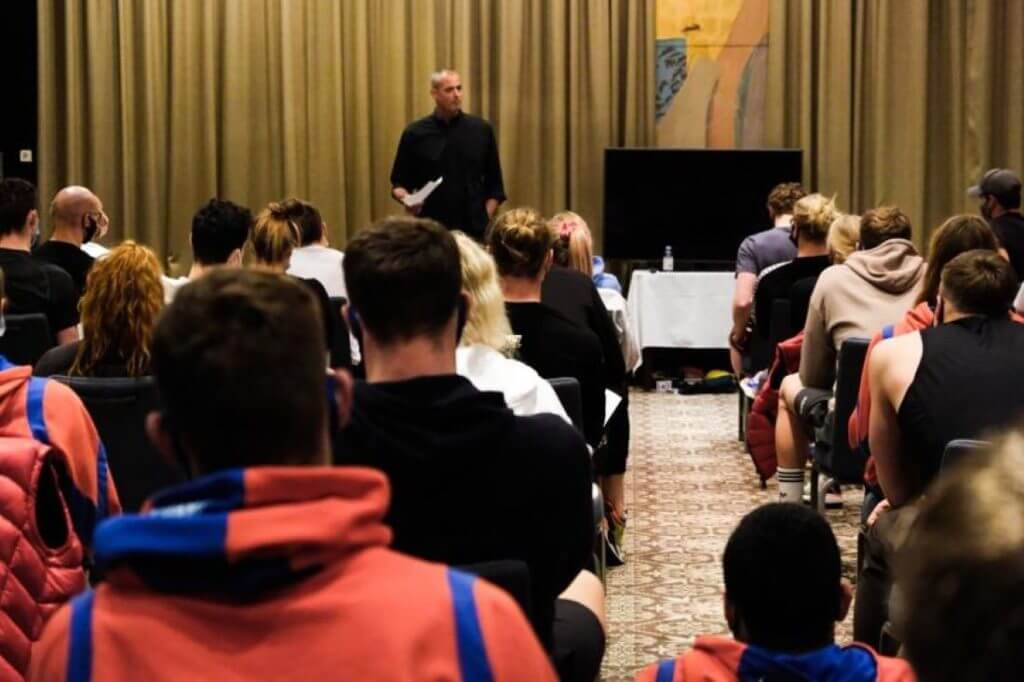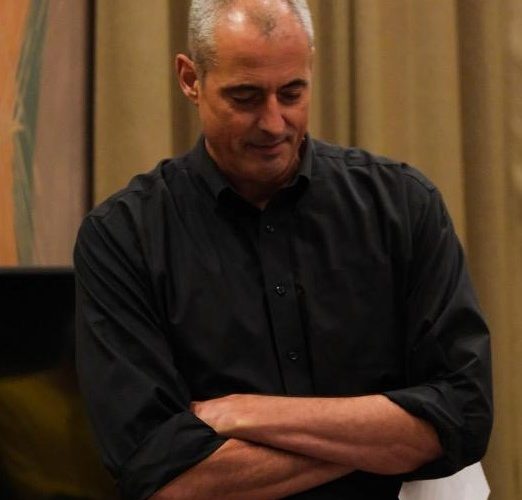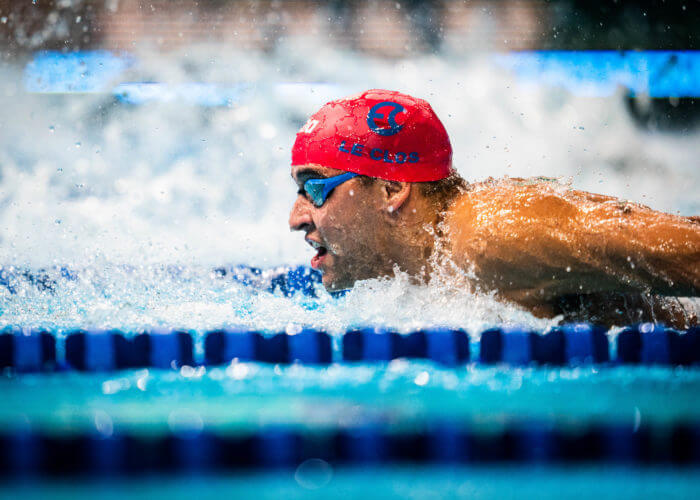Matt Biondi Putting International Swimmers’ Alliance Into Action

Matt Biondi Putting International Swimmers’ Alliance Into Action
It was late November 2019 when Matt Biondi, American legend of the pool, appeared at the International Swimming League’s European Derby in London. The 11-time Olympic medalist attended the meet in a business role, using the weekend to commiserate with some of the world’s elite performers.
He had just been named the Director of the International Swimmers’ Alliance, a swimmer-dedicated organization charged with providing greater opportunities for those who make the sport go – the athletes. Nearly 30 years after the conclusion of his Hall of Fame career, one which was thwarted when it came to prospering off his aquatic skills, Biondi found himself with the opportunity to benefit those who came behind him.
Now, 15 months later, the ISA is ready to take off, with the Alliance’s first board meeting scheduled for the coming weeks. Like most areas of life, the COVID-19 pandemic caused delays, and Biondi needed time to speak with potential Alliance members. In a way, consider the timeframe since the London Derby a version of the meet referee asking athletes to step down from the blocks, before stepping up again.
“We feel we’re ready to build and start engaging organizers,” Biondi said during a Sunday interview with Swimming World. “COVID was a double-edged sword. There were a lot (of athletes) who were afraid to join out of fear of engaging in something that was political. And there was the delay of a year by the Olympic postponement. But I think COVID brought up the problems with transparency (of the IOC and FINA). There was skepticism among the athletes. Who were the (organizing bodies) in it for?”

Photo Courtesy: Matt Biondi
Biondi ranks as one of the all-time greats in the sport, the highlight of his career a seven-medal haul (five gold) at the 1988 Olympic Games in Seoul. But Biondi also had difficulties in his career, namely limited opportunities to cash in on his talents and what he provided the United States and USA Swimming in international competition.
Instead of being supported and thanked for his contributions, Biondi was cast aside after emerging as a primary face of the sport and, more specifically, the Seoul Games. One tale that illustrates Biondi’s left-behind scenario unfolded in Bonn, Germany. As he prepared to race and represent his sponsor, arena, Biondi received a fax from USA Swimming informing him that if he competed, he was risking his eligibility.
Obviously, it was an unfair and insulting situation, since Biondi should have had the right to freely represent the brand of his choice and find respect for what he achieved in the pool while donning the Red, White and Blue. Making matters worse, Biondi watched Carl Lewis, winner of two golds and a silver in Seoul, travel to Europe and compete in multiple track and field meets, along the way raking in prize money.
So, it isn’t shocking that Biondi is eager to provide greater opportunities to this current generation of athletes.
“When this opportunity came along, it was curious,” Biondi said of leading the ISA. “I had the chance to contribute to an idea from 30 years ago that (Tom Jager) and I had started. It has given me the chance to travel to meets and professional hubs and explain the concept of the Alliance and its structure.”
As the ISA prepares to move forward, how is it shaped? Here are a few of the key components of the organization that Biondi maintains a passion for leading.
- Currently, the International Swimmers’ Alliance boasts 120 members representing 31 countries. Meanwhile, others have expressed interest in membership, and with the ISA now moving forward, this growth is anticipated.
- Through a concerted effort of unity, the ISA will seek to generate new revenue streams and have athletes share this money. The ISA is trying to increase prize money at current competitions that financially reward swimmers and introduce prize money at competitions that do not presently reward athletes financially, such as the Olympic Games. Biondi is hopeful that, eventually, swimmers will be rewarded with a percentage of the money the IOC receives from television contracts (that number in the billions of dollars), particularly because swimming is one of the most-viewed sports at the Olympic Games.
-

Chad Le Clos. Photo Courtesy: Mine Kasapoglu / ISL
A 10-member Board of Directors will guide the Alliance, with six of the positions occupied by swimmers. The first athlete members are Ranomi Kromowidjojo, Katinka Hosszu, Lia Neal, Tom Shields, Brent Hayden and Chad Le Clos.
- A five-tier membership system has been instituted, and based on an athlete’s status in the tiers, their financial rewards will be determined. Additionally, any money athletes earn through endorsements and clinics is not part of the sharing. Simply, the ISA identifies a distinct difference between competition and commercial funds.
How long will it take Matt Biondi and the ISA to reap rewards of their push? Time will tell. Certainly, though, the International Swimmers’ Alliance is moving forward in pursuit of enhanced benefits for the athletes, benefits that the athletes deserve as the focal point of a sport that would obviously not exist without them.
“All sports enjoy this give and take between athletes and owners,” Biondi said. “It’s been around for years. Let’s bring it to swimming.”
The movement is underway.



